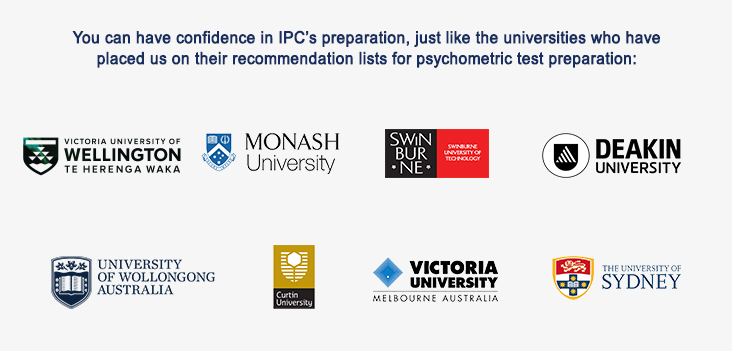Practicing Psychometric Tests and Self-regulated Learning
When someone expresses an interest in and then engages in practicing psychometric tests online with the aim of improving their psychometric test results, they can be described as a self-regulated learner. This is a very positive thing as self regulated learners are successful in academic and workplace settings (Corno et al., 2002). Accordingly, high psychometric test results are also dependent on self-regulated learning (i.e., practicing psychometric tests online). The question is: Are you a self-regulated learner?
From the cognitive perspective, self-regulated learning is underpinned by the interaction between you (your personal beliefs about past and future success, i.e., self-efficacy), your behaviour (e.g., engaging in a task), and the environment (e.g., feedback through practicing psychometric tests online). Self-regulated learning is guided by metacognition (thinking about thinking), strategic action (planning, monitoring, and evaluating personal progress against a standard or goal), and your motivation to learn. All of these factors and cognitive capacities are associated with success in psychometric tests, and you can improve these capacities by practicing psychometric tests online.
To define the concept further, self-regulated learners are aware of their strengths and weaknesses, and they have various strategies which they utilise appropriately in their approach to everyday tasks and also challenging tasks such as psychometric testing. For instance, test-taking strategies to help you tackle psychometric tests are developed through practicing psychometric tests online. Thus, self-regulated learning is based on preparation and practice type experiences such as practicing psychometric tests online. Self-regulated learners hold incremental beliefs about intelligence, rather than viewing their level of intelligence as static. That is, self-regulated learners attribute their successes or failures to specific factors under their control (e.g., effort expended on a task such as how much they practice online psychometric tests, and effective use of strategies). Thus through practicing psychometric tests online, you are able to incrementally build your beliefs about your intelligence, in-turn leading to increased motivation and success in psychometric tests. Furthermore, through continuous self-regulated learning, acquirable through practicing psychometric tests online, you will begin to believe that you can and will achieve success, i.e., high scores on your psychometric tests.
What all this suggests is that it is beneficial for you to be a self-regulated learner for many reasons. Another recommendation based on self-regulated learning theory, is for you to have a learning goal in mind (i.e., success on psychometric tests, high scores, improvement in scores etc). Then, through practicing psychometric tests online you can continuously re-assess your strengths and weaknesses, and your personal progress towards this goal, adjusting your test-taking strategies and psychometric test responses to maximise your psychometric test performance.
Additionally, self-regulated learning behaviour is described as a process, and this process refers to preparation and practice efforts such as practicing psychometric tests online. Your engagement in online practice psychometric tests will help you to develop your ability to learn through self-regulation. That is, you can respond to your incorrect responses on psychometric tests as a source of self-regulated learning rather than as a personal failure. That is, you can self-reflect on your past successes and failures under your control and learn from these, in order to improve your future psychometric test score results.









